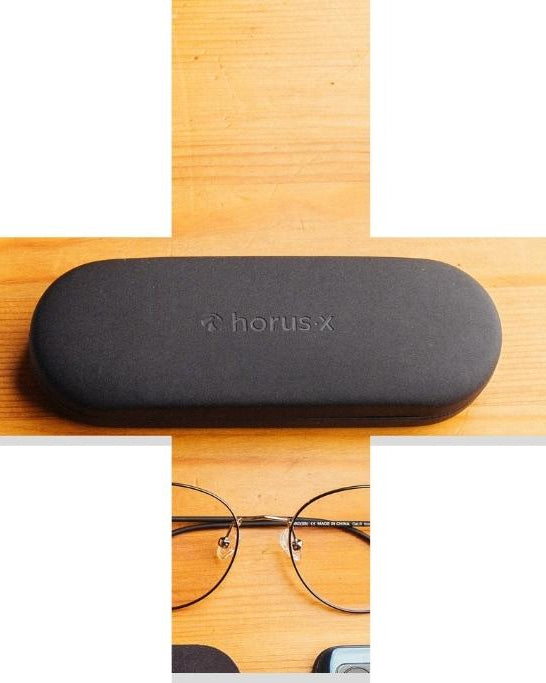Meditation is a powerful tool for improving concentration and calming the mind. Although frequently underrated, just ten minutes of meditation a day can refocus your energy, reprogram your brain and increase your concentration levels.
Whether you want to be more efficient in work, or more reactive for Elden Ring’s Colosseum DLC, meditation can change your life. And it’s scientifically proven!
Why can’t I concentrate?
If you struggle to concentrate and find your mind wanders often, there are probably multiple factors at play. Besides you hating your job.
Nowadays we’re so hooked up to technology it acts as a permanent buffer and distraction between us and the world. We’re hooked up to so many wires and machines we may as well be part cyborg.
But really concentration issues are a little deeper; there’s a whole litany of reasons you may struggle with concentration. We’re not saying meditation is a solve everything fix, this isn’t a romcom; but depending on the cause of your concentration issues, meditation for focus and clarity can help change your perception on work and life.
External factors that impact concentration
These would be classed as distractions beyond our control. For example:
- A notification on your phone or computer
- The postman knocking on your door with the latest Final Fantasy in hand
- Your dog deciding they never get any attention. Ever.
In short, a lot of things are beyond your control. But even if the causes of your lapses in concentration are external, we can put mechanisms in place to anticipate and mitigate their effects. Like employing meditation for focus and clarity.

Internal factors
These are all your internal concerns, thoughts and actions that impact concentration.
- Attempt to multitask. It’s a trap! Multitasking effectively is really hard, and instead most people just find themselves desperately trying to juggle 12 things at once.
- Your work does not match your personal values, is not interesting or challenging.
- You're hungry, this is particularly noticeable in children whose growth spurts make them unexpectedly taller and hungrier than they were yesterday… or even an hour ago. Where does it all go?!
- You don’t get enough melatonin for sleep.
- You are too stressed.
Medical factors
- Anxiety
- Attention deficit disorder with or without hyperactivity
- Depression
- Post-traumatic shock
These issues cannot be solved so quickly and its essential that if you do suffer from any medical or mental health issues that you consult your doctor. We’re not saying don’t meditate; in fact, many people with medical disorders find meditation a crucial and beneficial part of their treatment regime. However, it’s something that should form part of a recommended routine and not as a magic cure-all.
What is meditation?
The word meditation is derived from Latin and can be literally translated as “to ponder”. In other words, to sit and concentrate. Effective meditation for focus and clarity involves clearing your mind using a combination of mental and physical techniques.
The goal is to reach a high level of consciousness which should unlock a higher level of concentration. It’s like being in the Avatar state only, let’s face it, slightly less cool. When you reach this level of concentration you can learn to observe your thoughts judgement free, instead of ignoring them, or hiding under a pillow.
👉To meditate is to take a moment to shift your perspective on life, and become more appreciative of what you have.
Meditation: A powerful and essential tool for focus and clarity
Several thousand scientific studies are in agreement. Meditation is beneficial. Across the board, those who meditate report a positive impact on their mental, emotional and even physical, health.
The mental and emotional impact of meditation
Meditation has plenty of benefits, including:
- Heightened awareness
- Mental clarity
- Compassion
- Calmness
👉 All of this indirectly results in improved concentration.

There are also apps like Headspace, Calm and Petit Bamboo that can help aid meditation. They have also explored the apps effectiveness in studies, so we’re not just recommending our favorites.
- When using apps for just 4 weeks, participants concentration improved by 14%. Bennike, IH, Wieghorst, A. & Kirk, U (2017)
- In just one session, there was a 22% reduction in mind “wandering”. Kirk, U., Wieghorst, A., Nielsen, CM et al. (2019)
P.S: At Horus X, we use the app Headspace. We’re not paid to talk about them, we just genuinely believe it’s the best app for us! (Hey Headspace, please give us free stuff…)
The physical impact of meditation
You’re not going to suddenly go Super Saiyan, but meditation has some surprising positive physical impacts as well as mental.
🧠 One of the most profound benefits of meditation is that it not only changes your mindset and perspective, but it will also physically alter your brain, "rewiring" it to more positive thoughts and emotions.
📉 Meditation can also reduce negative neurological connections to the medial prefrontal cortex - or the "me center" of the brain - alleviating fear, stress and anxiety. And your own self-obsession.
📈 It also establishes positive connections with the parts of the brain responsible for promoting characteristics such as concentration and decision-making. It’s like your own little in-brain cheerleader!
How often should I meditate, and for how long?
Meditation is most effective when done regularly. So, trying it once and stopping for 6 months won’t have much of an impact. Even if you feel great for a while afterward.
The long-term effects of meditation are only seen if done regularly. Try and see meditation as daily mind training.

👉 The key word? REGULARITY!
Meditation is simple to add to your daily routine. The difficulty is actually remembering to do it and turning it into a habit. If, like us, you struggle with setting up positive habits for yourself, we recommend checking out James Clear’s ground-breaking book: Atomic Habits!
We recommend trying to do 10 minutes of meditation a day, every day.
💡 The Horus X Challenge: 10 minutes every day for 30 days. If you manage to make it through then congrats – you’ve formed a new habit. You’ll be teaching your own meditation class in no time.
When should you meditate to increase concentration?
Everyone is different, so find out what works best for you.
🌅According to studies (and what we’ve personally found), the most effective time to meditate is in the mornings. Firstly, because our mind is already more settled, receptive and malleable. Secondly, because the ongoing stress of the day/life/your inability to beat that final boss hasn’t set in yet.
All day long your mind needs to make tons of decisions, ranging from tiny (should I turn the PlayStation off or put it in rest mode?) to large (should I spent $60 on Jedi Survivor, or wait till it goes on sale?).
If you coach your mind through meditation in the mornings, you’re less likely to be irritable, meaning you’ll generally be much more pleasant to be around. You should also find yourself feeling calmer and more positive, and therefore more focussed; meaning your day is much more likely to be successful and productive. And you might find the answer about whether to buy Jedi Survivor straight away easier.
Did you know that according to a study by Harvard psychologists, we spend 47% of our time lost in thought?
💡 Horus X Tip: Coach your brain like you would your favorite person or entity. What would you say to them? What will work best to get them into this new habit?
The ultimate guide to improving mental focus through meditation
There are dozens of different meditation techniques out there, from mindfulness, to transcendental or Zazen; so we encourage you to try them out to find what suits you best.
But we want to share with you the technique we find simplest and most effective, inspired by these well-known methods.
Using this you’ll feel serene, concentrated like orange juice, as focussed as a laser, and as creative as Van Gogh in a field of sunflowers.
What you’ll need:
⏱️ Duration: 10 minutes.
🛠 Props: you, your body and your brain. Try and bring all 3.
🪑Position: Sitting.
🏡 Location: Quiet room away from pets, partners and natural disasters.

The Method:
Sit comfortably in a quiet room, making sure you have nothing nearby that could interfere. Put 10 minutes on a timer or stopwatch and put it aside so you don't be tempted to look at it too much. (Especially if it's on your phone, and don't forget to switch to airplane mode to avoid any notifications, unwanted or otherwise).
Close your eyes and try to perceive the different sensations of your body. Make sure you are in a position that you can maintain for these few minutes (cross-legged, sitting on a chair, kneeling). Try to avoid a position that promotes falling asleep (like lying down) because that is not the goal, even though a nap sounds great right now. You want to be able to relax but still be in full… possession… of… your... faculties…zzzzz.
Concentrate on your breathing. Take a deep breath in through your nose (this is important because it’s much more effective) and exhale deeply as well to clear your mind.
When your mind starts to wander, simply notice it, without judgment, and gently redirect your attention back to your breathing.
👉 A little trick we use at Horus X: breathing is something quite abstract and we like to have something more concrete to focus on. A good technique that works for us is to visualize a number between 1 and 9 and focus all your attention, without forcing it, onto this number. Project it in your mind, see its outlines; this is helpful because it provides your brain a precise point of focus. It's stupid but very effective.
Your toolbox for improving concentration
Meditating without taking other aspects of your life into account, is a bit like going to war without a sword, shield, or console controller.
💤 A good night’s sleep: the cornerstone of a healthy, relaxed mind. Above all, it’s the first thing to improve for an optimal concentration. At Horus X, we think one of the most effective ways to ensure a good night’s sleep is by using anti-blue light glasses or amber gaming glasses. As soon as the sun sets, these glasses help preserve your natural levels of melatonin that your TV and other screens negatively impact. Wearing anti-blue light glasses at night will help you fall asleep more easily at the desired time.
🚴 Regular exercise: the most effective tool for relaxation. Exercising actually changes the composition of our body. Without going into too much scientific detail (we’re not Norman Osborn), the hormones emitted during exercise are powerful antidepressants and promote long-term concentration. We love the FREELETICS app which helps us keep up regular training 4 to 5 times a week.
🍲 Healthy food: you are what you eat. Sort of anyway; no one is going to suddenly morph into a banana. But balancing your diet, gamer or otherwise, towards healthier foods, helps with things like minimizing sugar peaks, allowing you to have constant energy throughout the day.
📵 Avoid distractions: Do you know how long it takes to regain peak concentration after being interrupted in a task? More than 23 minutes on average! It’s therefore crucial to put your phone on silent to be able to maximize your concentration time and stop yourself from getting distracted by Raid: Shadow Legends. Try and set your devices to ‘do not disturb’ when you want to be really focused and productive.

Meditation for focus and clarity: the essentials
Meditation is both the easiest and most complex thing in the world, all at the same time.
It can be one of the best ways to regain a sense of calm and clarity. This is useful in all circumstances, whether you’re suffering from a mental health episode, or simply furious that you didn’t kill anyone on that last COD campaign.
Meditation is an age-old practice, dating back centuries. It encourages living in the moment, intentionally paying attention to everything around you and really being present, without judgement. This can be accomplished in many ways, such as focussing on your breathing, on a mantra, or by visualizing a calming image.
One of the biggest benefits of meditation, is improved concentration.
👉 Meditation helps develop your ability to stay focused on a task or activity, and better manage distractions.
Here’s some small ways meditation helps improve your focus:
Meditation reinforces attention: one meditation technique is to focus on an object (like breathing, or a visualized image) and each time your mind wanders, bring it back to this focus. Learning this improved focus then translates over into day-to-day life, improving your concentration.
Meditation reduces mental agitation: it calms your mind and reduces stray thoughts that can distract you or have a negative impact. It helps focus and provides a good way to manage and lessen distractions.
Meditation helps you better manage your emotions: meditation helps focus in times of stress. Although we recommend speaking to a doctor if you’re struggling mentally, meditation can be a good tool to help bring you back to a more even state of mind.
Meditation develops presence of mind: it allows you to live in the present moment and not be distracted by thoughts about the past or the future. You’ll remember way more of your conversations this way!
Meditation is not a magic bullet that allows you to become Professor X levels of focused overnight. Like anything it requires regular practice and training to perfect.
Try meditating right now – you can do it!















